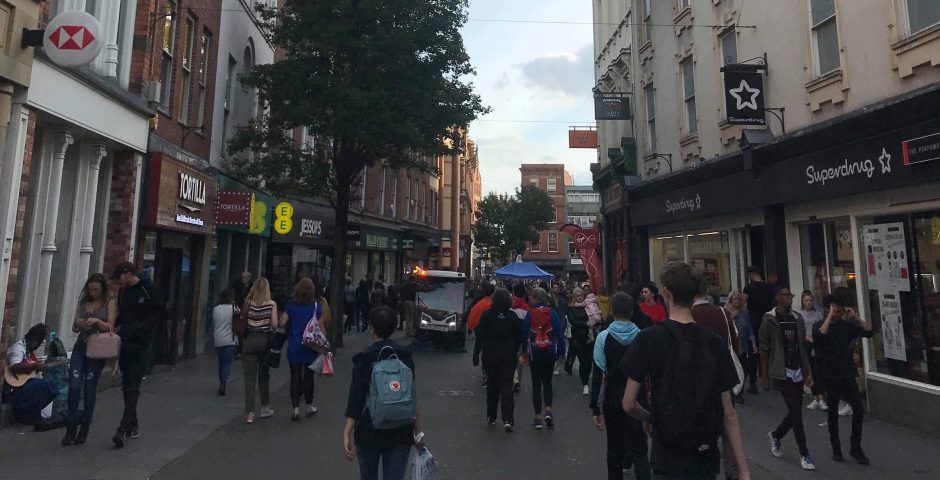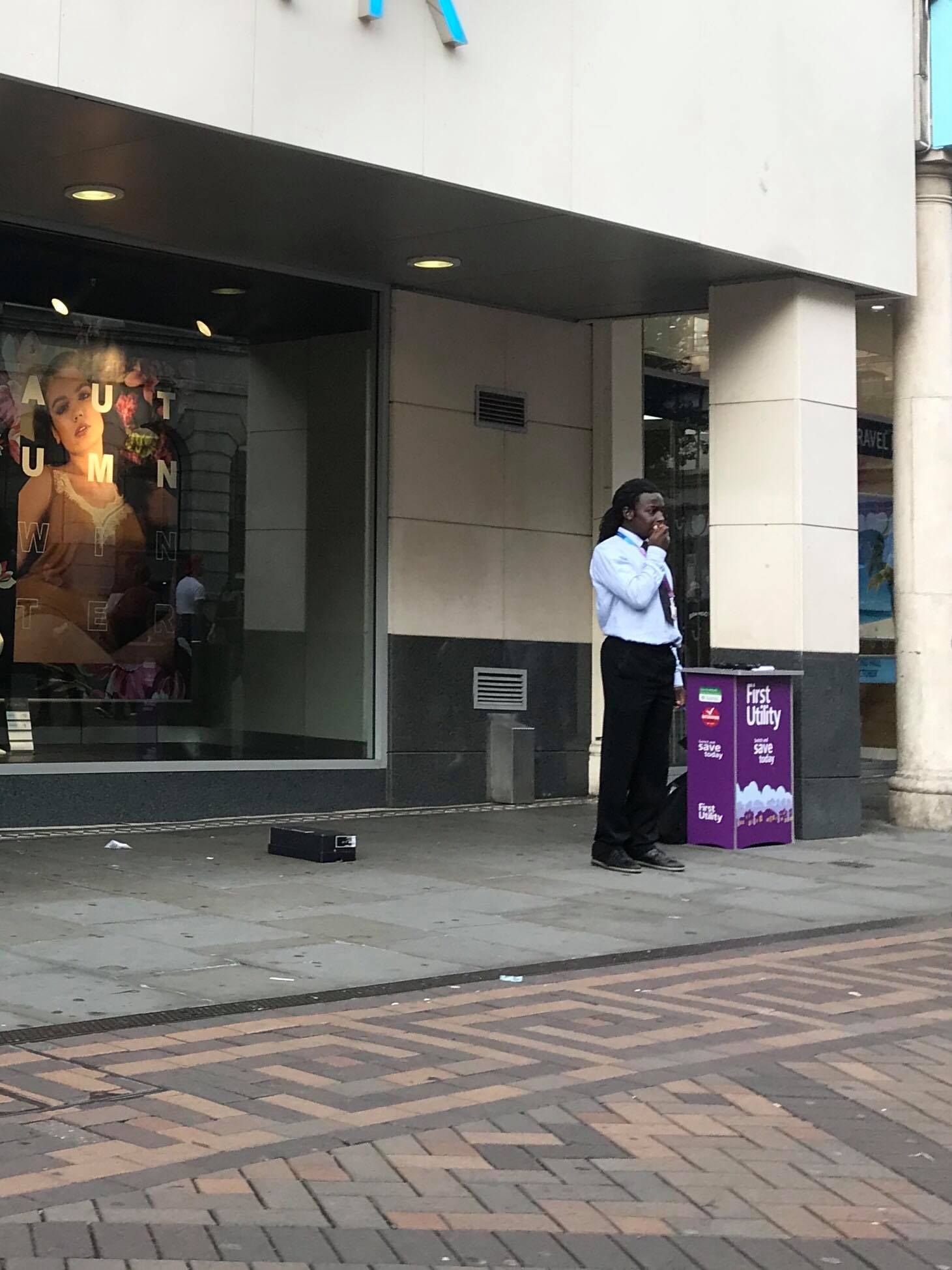
Street sellers in Nottingham: Selling store cards or selling the dream?
Exposing the unethical treatment of workers in pyramid scheme businesses
How many times have you been stopped whilst walking through Nottingham by a smartly dressed, charming, and young salesperson? Or caught the eye of an enticing and too-good-to-be-true offer?
If you have ever spared the time to stop and listen to their sales pitch, you may well have learned that the majority of these people are working for a global multi-level marketing scheme, or in other words: a pyramid scheme, and they are in nearly every city in the UK.
The services that these salespeople offer range from pay-monthly store discount cards that come with a free holiday, to gas and electrics services, to charity subscriptions.
Whilst the products on offer are legitimate, the workforce structure behind these companies is not so ethical. Talented young people, specifically graduates and university drop-outs, from everywhere are being sucked into this pyramid scheme business through empty promises of large pay packages and the potential for a rocketing career progression.
I spoke to a former student employee of one of the UK's largest pyramid scheme companies and gained an insight into their darker ways of business:
What initially attracted you to the company?
I left uni because it just wasn’t for me and I wanted a job quickly, so I initially applied to lots of sales and recruitment jobs. To be honest I don’t even remember applying for it, so they might have even found my CV online and contacted me.
What promises, if any, were you made when you got the job?
In my initial interview, they told me that it was a management training programme where you can become a manager within eight to 12 months. They said that there was four different stages and I would start on £250 per week at entry level. That increased to £350 per week if you were promoted to an "accounts manager". Apparently, people were usually promoted to this level within two to six weeks. The last two stages were "assistant manager" and "manager" which would get you £1,000 and £2,000 per week.

The student wished to be anonymous to prevent any backlash from her former employer
How were you paid?
It was only on the first day of street selling that I realised that the pay was commission only. Obviously, I panicked a bit, but I realised I was quite good at selling and I made over £250 in the first week. I later found out that If one of my customers cancelled their monthly payment plan within two weeks of signing up, then I wouldn’t receive my wages for that sale. On top of that, you had to pay any expenses, such as travel yourself. We went to different cities to sell on the streets and you have to pay the travel costs yourself.
How many hours a week did you work?
Probably a minimum of 60 hours a week but sometimes it could be 80. There were "crew nights" where you had to go for team-building exercises. They weren’t really optional. I now know that they just wanted you to feel isolated from your friends and family and make you spend so much time at work. Even if it was "work drinks" it was still working because I was networking. I was technically "self-employed" so if I took any sick days or holidays or even worked any overtime I wouldn’t get paid for it.
Did you plan on staying with the company when you first joined?
Yeah, I did, I could really see a career in for myself. Who wouldn’t want to be a manager and earning £1,000 after a year of working for a company? I was gullible to believe that because in reality they’re just selling you a dream and you end up doing that too and scamming people.

A recruiter for the company in Nottingham city centre
What do you mean by scamming people?
Well the whole point of the business is not to sell the product, it’s to recruit people and train them up. The more people that you recruit, the better chance you have at being promoted. You have to sell them the story about becoming a manager which is unrealistic because only three per cent of people ever reach management level and the vast majority of people who start won’t even last two week because of the nature of the business. You have to be great at sales to make any real money.
What was the worst part of working for the company?
I felt like I was brain-washed and that those colleagues were my "family". They used fear tactics to try and get people to work harder and stay in the business. I was told that "JOB" stood for "just over broke" and I believed that anyone working a 9-5 job was never going to earn loads of money, when in reality they were probably earning more than I was. The job looks attractive when it says you can earn £300 per week, especially to anyone like me who had just dropped out of uni.
What would you say to anyone who is thinking about entering the profession?
Don’t enter it. You scam people for a living by selling them the dream. I don’t feel guilty about the people that I sold to on the streets because that was a genuine product. I feel awful about recruiting people and pressuring them into starting the job when you know that they won’t be able to make a living from it. That is ultimately why I left the profession, because I felt guilty. The whole £100k a year is a lie; the managers I knew were sharing small flats with their workforce and didn’t take any holidays.









































